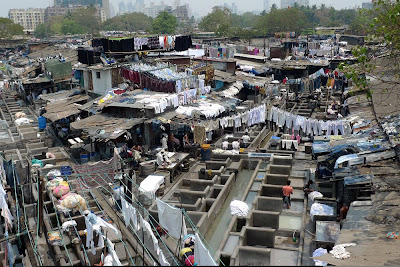Rounding the backstretch of our time in India, I have come to the saddening realization that things that once seemed exciting, exotic, and different from life at home now seem commonplace. So before I forget them all, let me list a few endearing facets of day-to-day Indian life:
 -things that would be thrown away at home are repaired here; today I got my falling-apart knock-off Birkenstocks repaired for an extended life; shoes, watches, clothes, and appliances can be fixed anywhere for cheap
-things that would be thrown away at home are repaired here; today I got my falling-apart knock-off Birkenstocks repaired for an extended life; shoes, watches, clothes, and appliances can be fixed anywhere for cheap
 -vendors of fruit, vegetables and metal cooking vessels use analog balance scales (Libra-style) to price their goods
-vendors of fruit, vegetables and metal cooking vessels use analog balance scales (Libra-style) to price their goods
 -shoe polishes and ironing services are widely available at reasonable prices
-shoe polishes and ironing services are widely available at reasonable prices
 -use of carbon paper is widespread; everything is recorded in triplicate paper copy
-use of carbon paper is widespread; everything is recorded in triplicate paper copy
-almost all rope and cord is made of natural fibres
-male cousins are called "cousin-brother" and female cousins are called "cousin-sister"
"Asad, of all people, has seen humanity at its worst. I asked him if he feels pessimistic about the human race.
'Not at all,' he responded. ' Look at the hands from the trains.'
If you are late for work in the morning in Bombay, and you can reach the station just as the train is leaving the platform, you can run up to the packed compartments and find many hands stretching out to grab you on board, unfolding outwards from the train like petals. As you run alongside the train, you will be picked up and some tiny space will be made for your feet on the edge of the open doorway. The rest is up to you. You will probably have to hang on to the door frame with your fingertips, being careful not to lean out too far lest you get decapitated by a pole placed too close to the tracks. But consider what has happened. Your fellow passengers, already packed tighter than cattle are legally allowed to be, their shirts already drenched in sweat in the badly ventilated compartment, having stood like this for hours, retain an empathy for you, know that your boss might yell at you or cut your pay if you miss this train, and will make space where none exists to take one more person with them. At at the moment of contact, they do not know if the hand that is reaching for theirs belongs to a Hindu or Muslim or Christian or Brahmin or untouchable or whether you were born in this city or arrived only this morning or whether you're from Malabar Hill or New York or Jogeshwari. All they know is that you're trying to get to the city of gold, and that's enough. Come on board, they say. We'll adjust."











